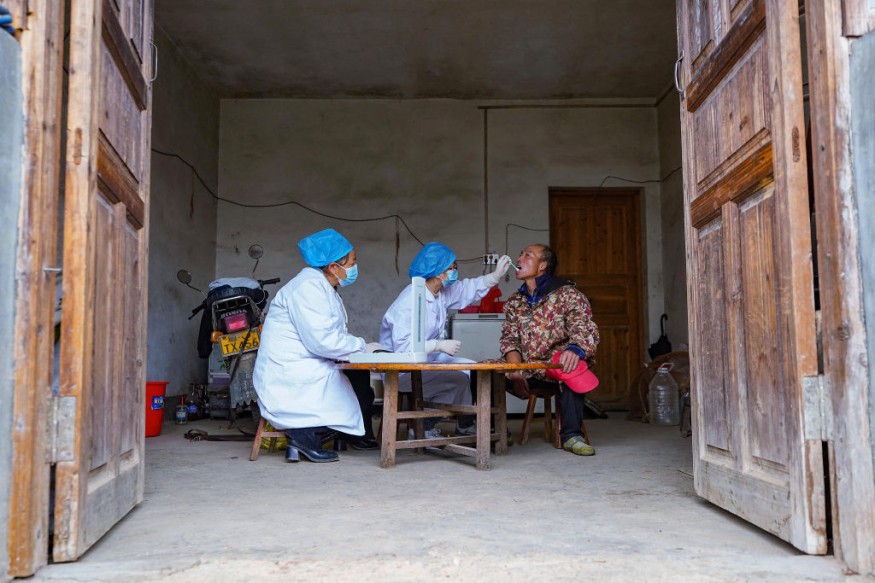
An investigation of five fur farms in China revealed a high risk of infections spreading from animals to humans, according to the animal protection group Humane Society International.
Alarming Animal Condition
Alarming footage from fur farms in northern China reveals foxes, raccoon dogs, and mink exhibiting repetitive, stereotypical behavior associated with mental decline, and animals kept in harsh conditions, including close contact with poultry, despite the risk of zoonotic disease spread.
In December 2023, investigators visited five fur farms in the northern areas of Hebei and Liaoning, where they observed extensive antibiotic use and the sale of raccoon dog carcasses for human consumption.
The farms each held from 2,000 to 4,000 animals in intense circumstances, including in close proximity to poultry.
Chinese investigator Xiao Chen said the fur farms visited were typical of those seen throughout China, where animals are unfortunately kept in tiny, barren cages, with many pacing up and down repeatedly owing to psychological distress.
"These are naturally inquisitive, energetic animals but they are reduced to this sad existence in a wire cage with nowhere to go and nothing to do," he added.
Despite the fact that hundreds of COVID-19 and avian influenza cases have been documented on fur farms around the world since 2020, fur farmers told investigators that they do not routinely sterilize their farms due to cost considerations.
Several fur farms' food preparation sections revealed enormous quantities of frozen fish, chicken meat and liver, eggs, and milk powder being mashed into paste for animal feed.
In addition to increasing the carbon footprint of fur farming, experts have identified feeding raw chicken flesh to animals on fur farms as a biosecurity issue.
Animal-to-Human Diseases
According to Alastair MacMillan, a visiting lecturer at Surrey University's Veterinary School, the animals' high stocking density allows viruses to transmit quickly via droplets from one to another, potentially to humans.
"The rapid circulation and mixing of different strains of virus from animal to animal facilitates their adaption to a mammalian host, the development of mutant strains of concern and a greater likelihood of a threat of human infection," he added.
China's Ministry of Agriculture and Rural Affairs did not respond to inquiries about the conditions on the fur farms or the potential for disease transmission.
MacMillan stressed that the footage was particularly concerning in terms of disease transmission and public health because animals raised for fur are known to be sensitive to respiratory infections that can infect humans.
Cases of avian influenza have already been documented on European fur farms, and the close proximity between species considerably increases the danger of avian-to-mammal transmission.
Data from the early days of the COVID-19 pandemic, briefly posted to a database by Chinese scientists last year, revealed that raccoon dogs may have also been engaged in coronavirus transmission to humans.
While China's fur production has declined in line with worldwide trends, dropping 50% from 2022 to 2023 and over 90% over the last decade, there appears to be a strong demand for fur.
Users on social media platforms like Weibo and e-commerce site Xiaohongshu discussed wearing fur as desired and useful for staying warm.
Related Article : China Suffers Worst Coronavirus Outbreak Since Wuhan as Delta Variant Spreads Fast
https://www.youtube.com/watch?v=pZ227JS3dhw
© 2025 NatureWorldNews.com All rights reserved. Do not reproduce without permission.





